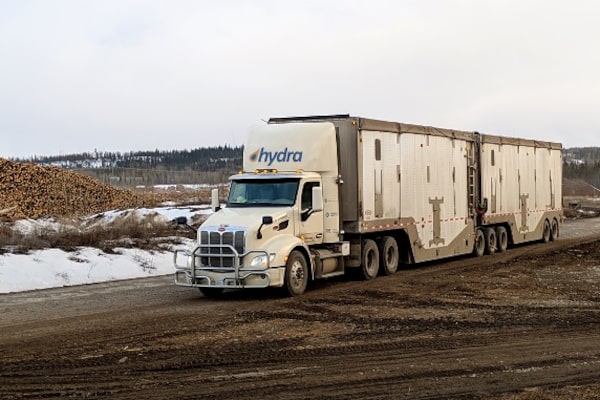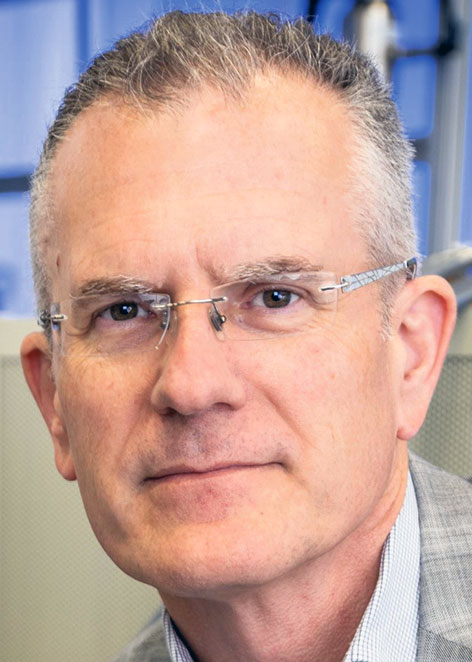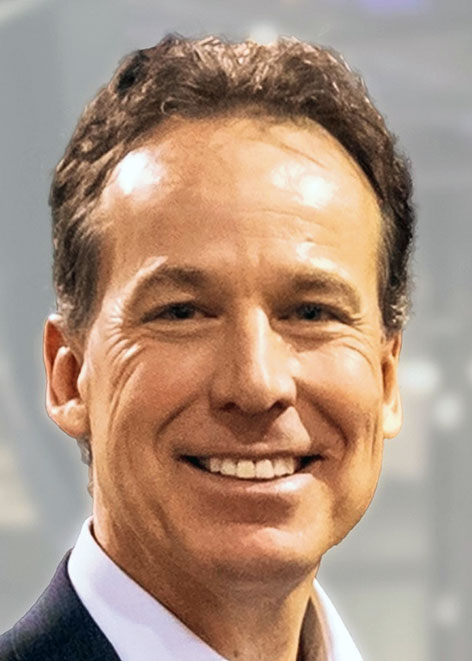
Hydra Energy’s innovation, which is blending hydrogen into existing diesel trucks, is helping to improve the environmental footprint of road transportation.Supplied
With nearly one third of Canada’s greenhouse gas emissions associated with transportation, the sector is a prime target for cleantech innovation.
Thanks, in part, to recognition earned by their involvement in Canada’s Clean50, leaders dedicated to advancing low-carbon transportation options have found allies and partners in their efforts to accelerate their market entry and growth. “We are tireless at creating connections that make a difference,” says Gavin Pitchford, Clean50 Awards executive director and CEO of Delta Management Group.
For example, Loop Energy, a developer, manufacturer and supplier of hydrogen fuel cells for transportation and power generation systems, won the 2015 award in the R&D category. Fast-forward to 2021, and you see the company going public – and raising $100-million in an over-subscribed offering on the TSX.
“In 2015, Loop Energy had a cool idea but no customers and limited capital,” recalls Mr. Pitchford. “A couple of years later, the founder told me that the recognition served as a powerful catalyst – from winning the award as well as the connections he made at the Clean50 summit that year.”
Loop Energy connected with Walmart and this, in turn, led to a partnership with truck manufacturer Peterbilt. “Together, they built and tested the product and proved it worked,” Mr. Pitchford explains. “And now they’re exporting their hydrogen fuel cells to China and the U.S., in addition to seeing prospects for growth in Canada.”
This is only one example among many, he says. “If you look at our past R&D Clean50 winners, you’ll see a raft of companies we identified early and whom we were able to help connect with funders and capital. Now, they’re the cream of the crop of the Canadian cleantech industry.”
There’s a lot of momentum in efforts to decarbonize transportation, and Mr. Pitchford credits the Canadian Urban Transit Research & Innovation Consortium for efforts to evolve this field.
In addition to Loop Energy, other players contribute to an evolving hydrogen eco-system with significant potential for creating jobs and exports and reducing emissions. “They include companies like HTEC, building a hydrogen grid, and Hydra Energy and Ballard, creating fuel cells that can be embedded in trucks,” he says, adding that Renewable Hydrogen Canada creates hydrogen, and Hydrogen in Motion offers hydrogen storage. Canadian companies in the electric vehicle (EV) space, including buses and trucks, are also world-leading.
“Lion Electric, New Flyer and others are building – and selling – the best products in North America,” says Mr. Pitchford. “On the infrastructure side, Kent Rathwell of Sun Country Highway built a network of electric vehicle chargers for the world’s longest green highway.”
With 82 per cent of electricity in Canada being greenhouse gas emissions free, he suggests that “decarbonizing transportation via electricity or green hydrogen is probably the single fastest way – and one that both consumers and businesses can accomplish – to cut emissions and move us closer to our climate goals.”
Clean50 Award Winners

BEN NYLAND
The president and CEO of Loop Energy took the company from the early stages of development – with limited funding – to a scale that now allows expansion into three key regions – the U.S., China and Europe – by commercializing a more powerful and less expensive hydrogen fuel cell solution.

JESSICA VERHAGEN
The chief operating officer at Hydra Energy executed the world's first hydrogen-as-a-service contract, enabling existing trucks to run on 40 per cent green hydrogen with no upfront costs. Scaling this across Canada can reduce commercial road transport emissions by up to 12 per cent.

SOROUSH NAZARPOUR
Leveraging a new technology for producing large volumes of graphene, which was only discovered in 2004, NanoXplore’s president and CEO Soroush Nazarpour has scaled his company to achieving more than $70-million in annual sales of a material that is essential to battery manufacturing.

JOSIPA PETRUNIC
The CEO of the Canadian Urban Transit Research and Innovation Consortium has been executing the Pan Canadian Electric Bus Demonstration and Integration Trial, the first project in the world looking to design, develop and integrate battery electric buses with charging systems that operate interactively across different manufacturers.

MARC BÉDARD
Each of the Lion Electric Co.'s zero-emission school buses save 23 tonnes of carbon emissions per year. Led by Marc Bédard, the company's 300 vehicles – including class 5-8 trucks and mini-buses – have driven 10 million zero-emissions kilometres to date, significantly reducing the carbon impact of Canada's transportation sector.

CAROLINA GALLO
As vice president, Government and Institutional Relations, Canada, at Hitachi ABB Power Grids, Carolina Gallo has been part of a national consortium dedicated to designing and launching smart low-carbon mobility projects across Canada, especially those that require a focus on R&D and the ability to align the interests of both local and global players.
Advertising feature produced by Randall Anthony Communications with Canada’s Clean50. The Globe’s editorial department was not involved.